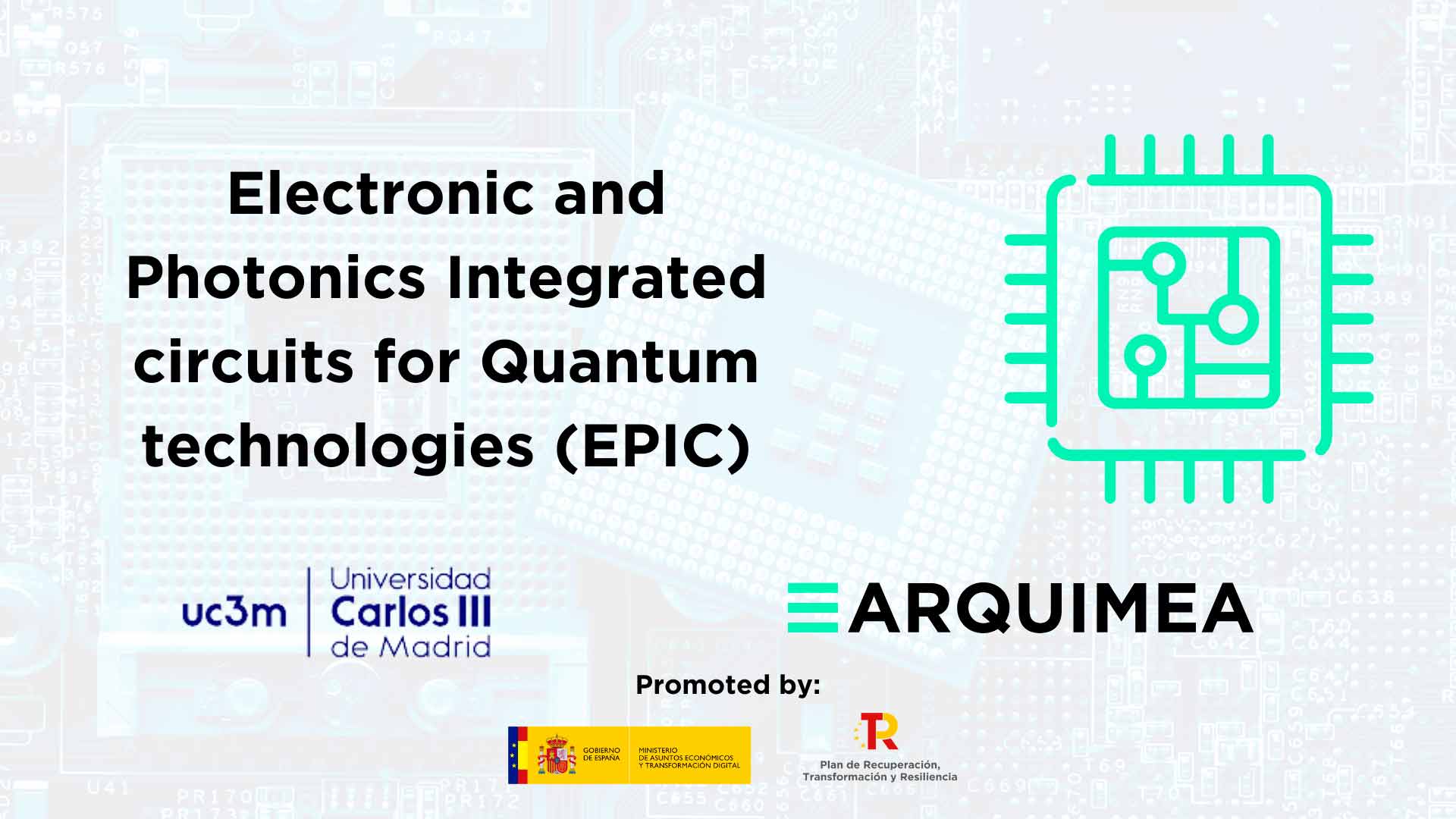- Sectors
- Aerospace & Defense
- Big science
- Fintech
- Insights

San Cristóbal de La Laguna, March 2024
ARQUIMEA Research Center, the research center of the technology company ARQUIMEA, will lead, together with the Carlos III University of Madrid, a collaborative chair to advance the application of photonics and integrated electronics to new quantum technologies.
This chair, named EPIC (Electronic and Photonics Integrated circuits for Quantum technologies) proposes the research and development of photonic chips in four lines of research: quantum sensing for spectroscopy, multisensing with vacancy-nitrogen diamond centers, electronic chips for post-quantum cryptography and post-quantum cryptography.
Moreover, it will also promote training actions with four programs, the Bachelor’s Degree in Engineering Physics, the Master’s Degree in Quantum Technologies and Engineering and the PhD program in Electrical, Electronic and Automatic Engineering.
Universidad Carlos III de Madrid and ARQUIMEA share a long history of collaboration with ten contracts and three industrial doctorates, as well as scholarship programs with the Master in Quantum Technologies and Quantum Engineering. In addition, ARQUIMEA Research Center has received UC3M researchers on leave of absence under the Science Law, in order to promote technology transfer between universities and companies.
Obtaining this chair is another milestone in ARQUIMEA’s objectives to become a leader in Innovation and Development and belongs to the line of actions executed from the program co-financed by the European Union QCIRCLE, which will create in the Canary Islands a Center of Excellence in Quantum led by ARQUIMEA Research Center and with the support as partners of some of the main players in quantum technology at European level, including the CSIC and its quantum platform QTEP (Spain), the University of ULM and its Institute of Quantum Optics (Germany), the UK Quantum Technology Hub Sensors and Timing (United Kingdom) and the Institute for Quantum Optics and Quantum Information of the Austrian Academy of Sciences (Austria).
“Funded by the European Union. Views and opinions expressed are however those of the author(s) only and do not necessarily reflect those of the European Union. Neither the European Union nor the granting authority can be held responsible for them.”
